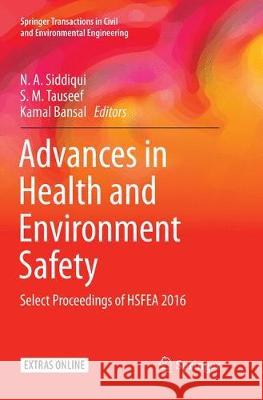Advances in Health and Environment Safety: Select Proceedings of Hsfea 2016 » książka
topmenu
Advances in Health and Environment Safety: Select Proceedings of Hsfea 2016
ISBN-13: 9789811355905 / Angielski / Miękka / 2018 / 396 str.
Kategorie:
Kategorie BISAC:
Wydawca:
Springer
Seria wydawnicza:
Język:
Angielski
ISBN-13:
9789811355905
Rok wydania:
2018
Wydanie:
Softcover Repri
Ilość stron:
396
Waga:
0.68 kg
Wymiary:
23.37 x 22.86 x 1.78
Oprawa:
Miękka
Wolumenów:
01











